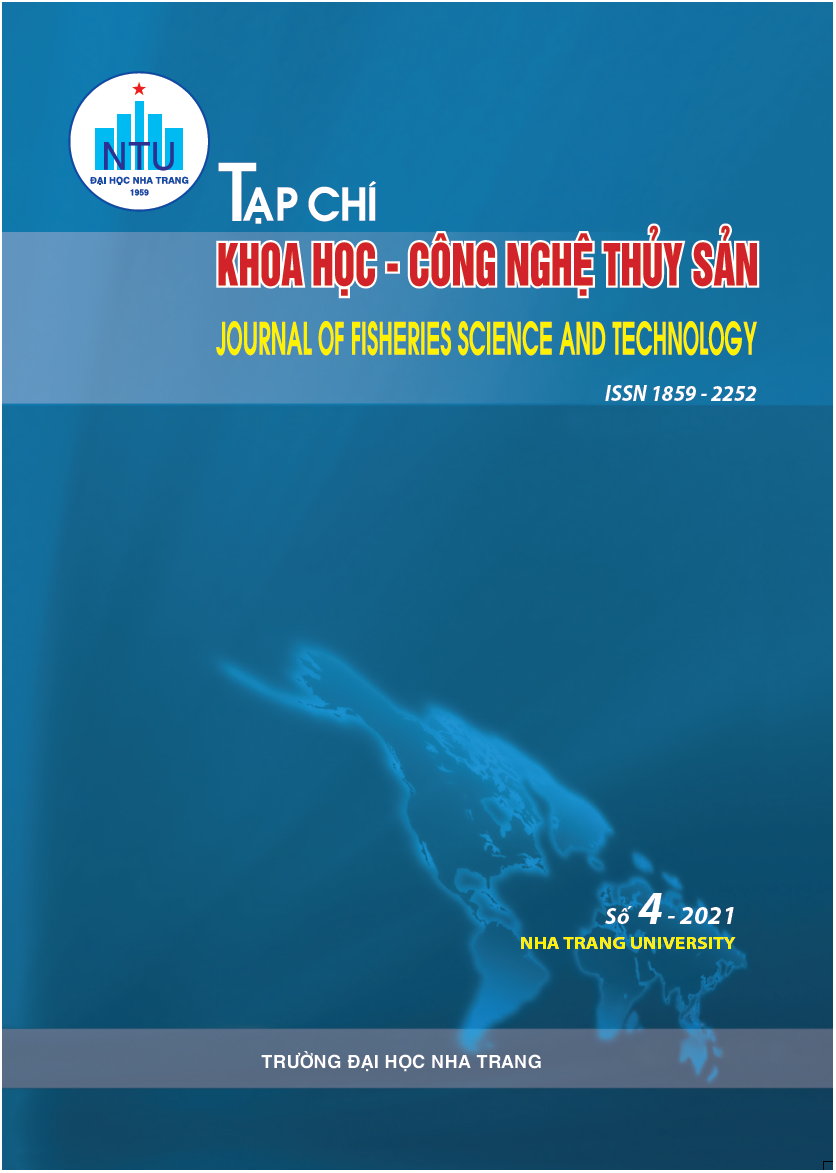##plugins.themes.huaf_theme.article.main##
Abstract
This study was carried out to evaluate effects of temperature reduction on water quality and survival rate of Asian seabass juvenile during live transportation. The experiment included four treatments of different temperature levels: 24°C (NT1), 22°C (NT2), 20°C (NT3) and 18°C (NT4) with three replicates for each treatment in the same time. The fish with an average weight of 20.15±0.12 g, and length of 11.25±0.15 cm were transported in closed insulated boxes with aeration and supplemented with pure oxygen at density of 100 ind./40 L of water. Water quality, glucose concentration in blood, and survival rate of the fish were recorded at the beginning, after transport 6h and 12h, and 3, and 7 days after transporting. During transportation, DO and pH decrease gradually, whereas CO2, TAN and NO2 increase gradually compared to the original. The blood glucose content of fish increased during transportation due to stress. At the time of 6h of the transportation, the survival rate of the fish of NT4 (18°C) was 92.6%, the lowest and significantly different from NT2 and NT3 due to cold shock. At the end of the transportation (12h), the survival rate of the fish of NT1 (24°C) was 88.0%, the lowest and significantly different from NT2 and NT3 because fish were more stressed during transport. Mortality of the fish was occured after the transportation maybe due to stress and scratched. The appropriate temperature for live transportation of seabass juvenile was 20-22°C with a 6-12 hours of transporting.

